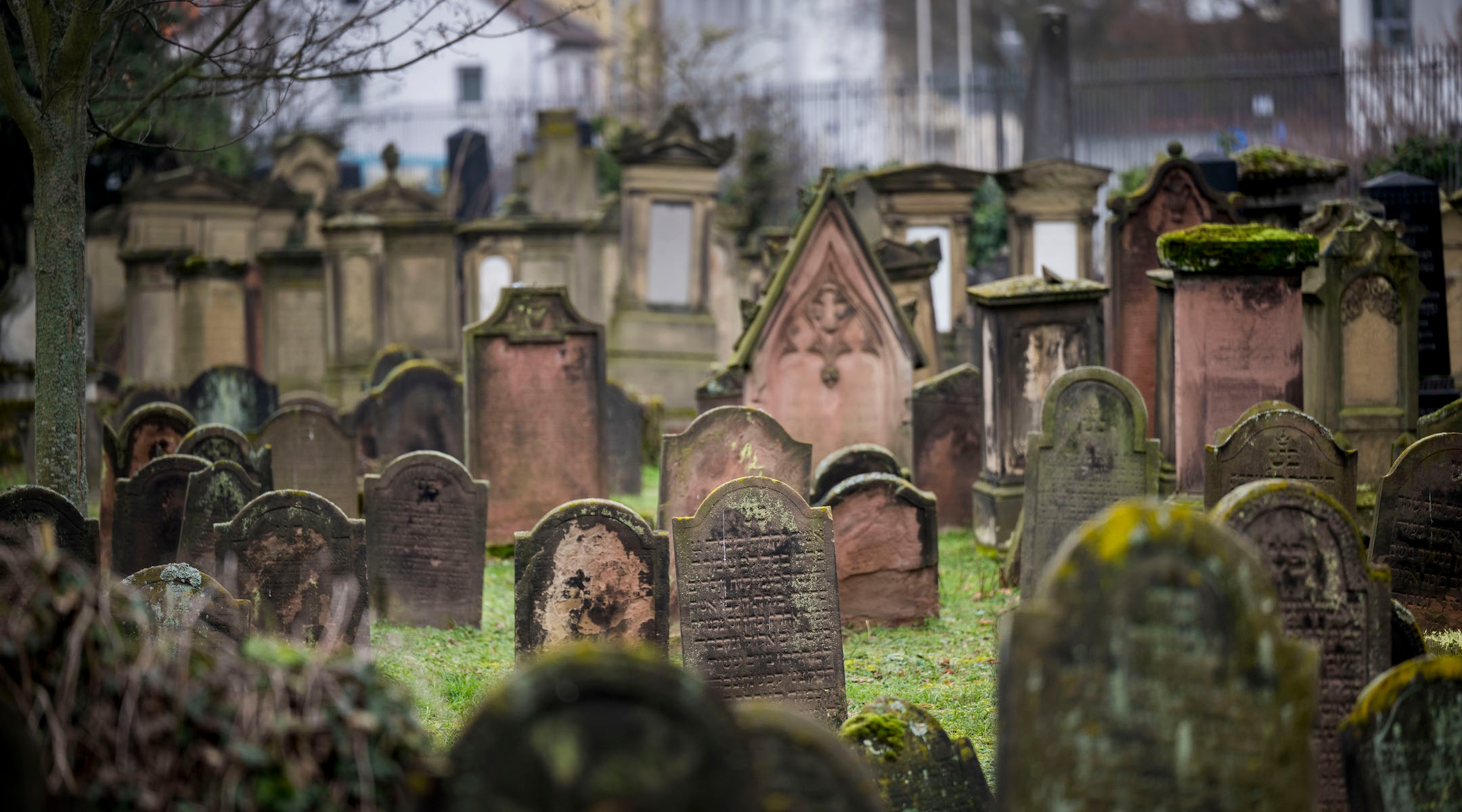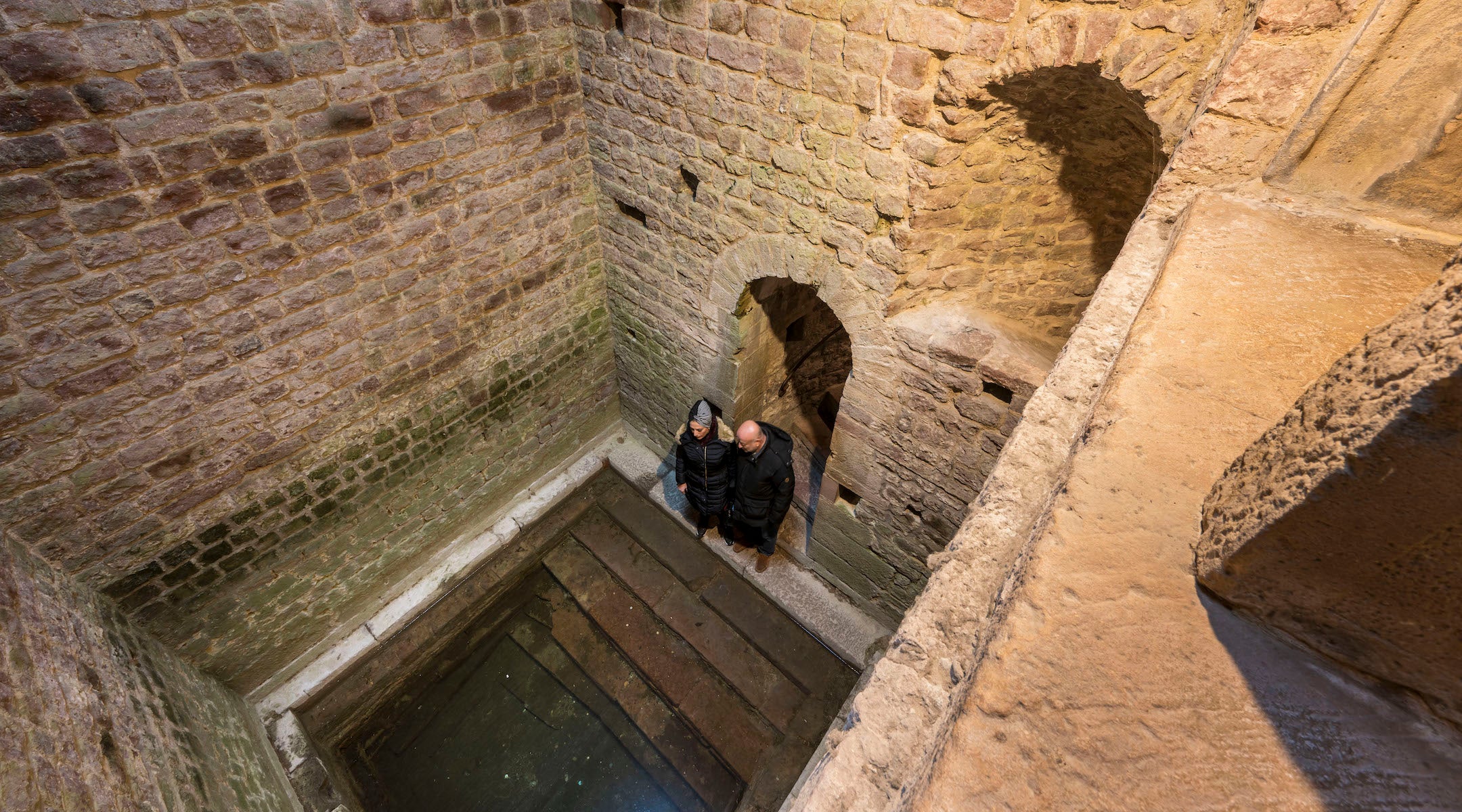Germany celebrates UNESCO World Heritage listing for sites known as the birthplace of Yiddish and Ashkenazi culture
They are the first German-Jewish additions to the UNESCO World Heritage list

The Jewish cemetery in Worms, Germany, shown Jan. 25, 2023, is the oldest in-situ preserved Jewish cemetery in Europe. (Thomas Lohnes/Getty Images)
(JTA) — Germany held a ceremony to celebrate the first German-Jewish sites to be given UNESCO’s World Heritage designation on Wednesday.
The sites in the upper part of the Rhine River valley are known as the origin point of Ashkenazi culture and where the Yiddish language first began to develop over 1,000 years ago. They were recognized by UNESCO, the United Nations’ education and cultural body, in July 2021, but the coronavirus pandemic delayed Germany’s celebration of the designation.
UNESCO recognized the Speyer Jewry-Court, a synagogue and yeshiva complex in the city of Speyer; the Worms Synagogue Compound; the Old Jewish Cemetery of Worms, the oldest known in-situ Jewish cemetery in Europe; and the Old Jewish Cemetery of Mainz.
“The unique community centres and cemeteries have had a lasting impact on the material Ashkenazic culture and are directly and tangibly associated with the creative achievements of the early Ashkenazic scholars,” UNESCO’s listing explains.
President Frank-Walter Steinmeier visited a synagogue in Mainz on Wednesday.
“Before July 27, 2021, there were 49 World Heritage sites in our country, from Roman Trier to the old Hanseatic cities of Stralsund and Wismar, from Aachen Cathedral to Wartburg Castle near Eisenach. The list reflected the diversity of culture and nature, but it had a large gap: there were no Jewish cultural monuments,” Steinmeier said in his address.

He was joined at the celebration by Audrey Azoulay, the director general of UNESCO. Azoulay, a French Jew, is the daughter of Andre Azoulay, a Moroccan-born Jewish banker who currently serves as an advisor to Morocco’s King Mohammed VI.
Steinmeier stressed how the sites give evidence that Jewish history in Germany, both good and bad, stretches far beyond the Holocaust. The cities of Speyer, Mainz and Worms were the sites of large scale massacres of Jews during the Crusades and the 14th-century bubonic plague epidemic, but they were also the home of some of the greatest leaders of European Jewry, such as the famed Torah commentator known as Rashi.
“For centuries, Jews in Germany were seen as strangers, as others. They were repeatedly humiliated, excluded, deprived of their rights, persecuted, murdered — even before the National Socialists and their willing executors almost completely wiped out Jewish life in Germany and Europe,” Steinmeier said. “The monuments and gravestones in Speyer, Worms and Mainz tell of the deep roots of the Jews in our country, of the flourishing of their culture, of self-assertion and emancipation, of times of peaceful coexistence with the Christian majority.”
This article originally appeared on JTA.org.






















